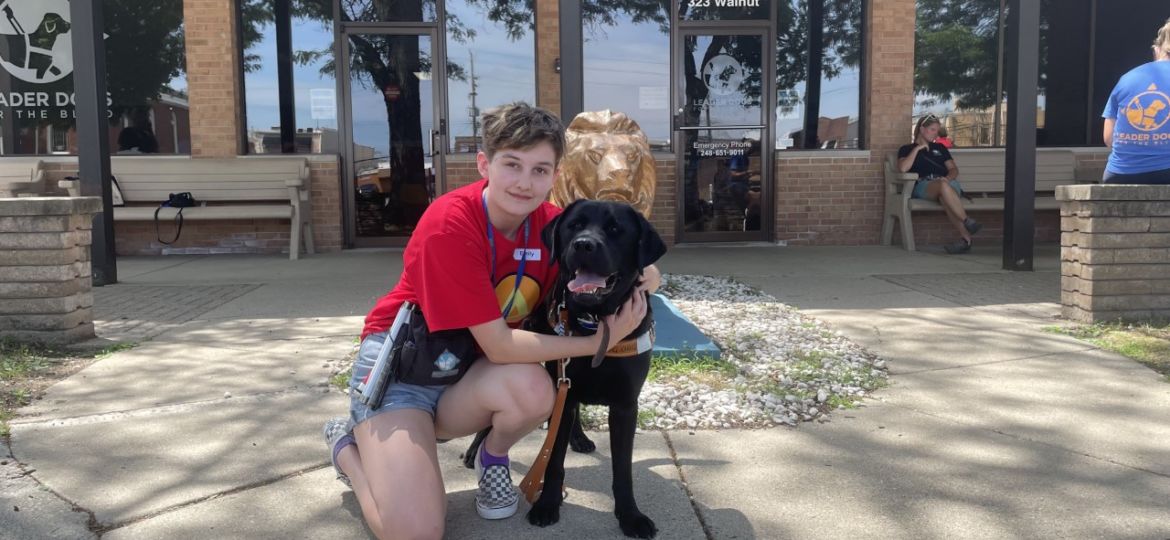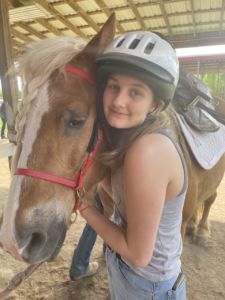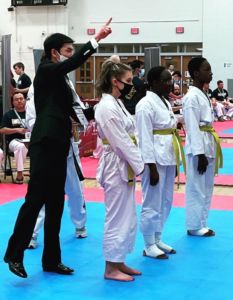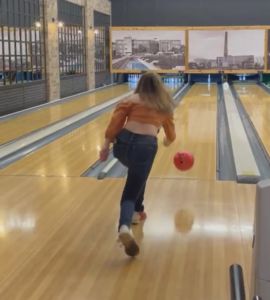

One in forty thousand.
Not exactly a million, but rare enough to not think about every waking moment. Unfortunately, it was something that I had to think about.
Ever since I was a kid, I was always out on some adventure. My family encouraged it, letting me run and play like a normal child. It wasn’t until I ran into a pole at night, thinking it was my dad, that they realized something may be wrong. I was first diagnosed with Stargardt disease, but you had to see well in the dark for that, so clearly, that was not me.
The ophthalmologist struggled to find what was wrong with me; the symptoms were there, but nothing seemed wrong enough with my eyes to give a solid conclusion. When a test was done on the cones and rods of my eyes, they realized that they were dying, but not regenerating at the rate needed to maintain the amount needed to function at full capacity. It was a shock to all of us — no one in my family had ever had any indication of this disease.
My life changed from thereon. My vision at the time was still usable enough, but as I got older it began to drop at random points in my life. I lived in fear of the next time my vision would drop. The red and white canes used by the blind are gateways to independence, but I saw mine as anything but. I didn’t carry one around and constantly worried about how others perceived me.
Those might’ve been some of the hardest years of my early life so far.
I was bullied some, which hurt my pride in who I was. I’m not typically a meek person, but those people made me feel so … inferior. But, why? I was just like them, maybe running into a chair or two along the way, but I had the same interests and motivations. Why was I the scapegoat?
I thought about this for a while, and honestly, it wasn’t what I wanted to hear at the time. Cone Rod Dystrophy is a disease that doesn’t have a cure as of now and might not ever. I couldn’t spend my life waiting and hanging onto the hope that things would get better; my mindset had to be what changed.
Honestly, the Coronavirus seemed to be a blessing in disguise. I hadn’t really met blind people that were like me; I felt like a minority. When I found social media influencer Molly Burke, I was shocked, because she was just like me. She liked sports and fashion, but she was also blind. She gave me confidence in myself to be able to reach for my dreams.

Along with Molly, online forums and other YouTubers provided a basis for me to grow and see people find ways to work around their visual impairment. I became incredibly motivated to be like them, not to just be a statistic. I started to feel comfortable in my blindness, which was truly an out-of-body experience. The confidence and optimism I exuded also helped keep me active and in society.
That was really what saved me at the beginning of this year.
I had developed severe depression, one where I couldn’t even look at my phone sometimes, which means you know it’s bad.
I wanted to work, but there was no motivation to do any of it. The feeling of not having control terrified me, and I hated wanting to work but not having the energy and emotion to do it.
These drops in my visual acuity were hard on me, many coming on suddenly. I had to cope with the drops while still doing schoolwork and extracurricular activities, fighting to change how I did everything in an ever-changing world.
It was exhausting, and I didn’t realize how bad the depression had gotten until I was at my breaking point. Luckily, I was able to reach out for help because the confidence and optimism I had built myself up with helped me tell someone that I was struggling. Of course, I still deal with it, but I’m glad to say that it has given me life experience that has helped me empathize better with others going through similar situations.
Through this time, I was coming up on my yearly IEP (Individualized Education Plan) meeting, where my low vision teacher mentioned that I would pair well with a guide dog. I brushed it off initially because I had always thought that guide dogs were for people who were fully blind. My teacher showed me that they really aren’t, and many guide dog users were just like me. They were strong, independent, and motivated.

Once I saw those people, I knew what I had to do: get a guide dog of my own. There are many schools for training guide dogs, but I eventually went with Guide Dog Foundation. The process was time-consuming but worth it, and as of April 1 of this year, I was accepted onto their waiting list. I am still waiting for my partner, but I’m confident that they will be the perfect fit for me.
In June I attended Leader Dog’s Summer Experience Camp for teens just like me. It was amazing to reinforce the fact that we are all normal people; I was able to talk and socialize just like I would with any other people my age. It was such a valuable experience that I wouldn’t trade for the world.
During the week I got to train with a future leader dog, which was awesome. It felt so freeing when I moved around objects with ease, because with my cane I constantly must find and maneuver around obstacles. I was a normal person who didn’t have to worry about whether I was about to trip over a branch or run into a trashcan.
In my opinion, no one is ever truly alone, but many times it feels like we are silently drowning. Communities can help to boost your confidence in not only your daily life but online as well. Online communities can be vital in expanding your views and perceptions of the world, as you constantly meet and interact with vastly different people. It helps tremendously to have people that build you up and make you a better, more empathetic human being.
17-year-old Emily Nelson is finding her footing one step at a time, be it with a cane or guide dog. She is incredibly active with horseback riding, Tae Kwon Do, and Dungeons and Dragons, along with being passionate about anthropology and related studies. She currently lives in Fishers, Indiana, and plans to attend Indiana University next fall.
All of our content—including this article—is completely free. However, we’d love if you would please consider supporting our journalism with an Indy Maven membership.






